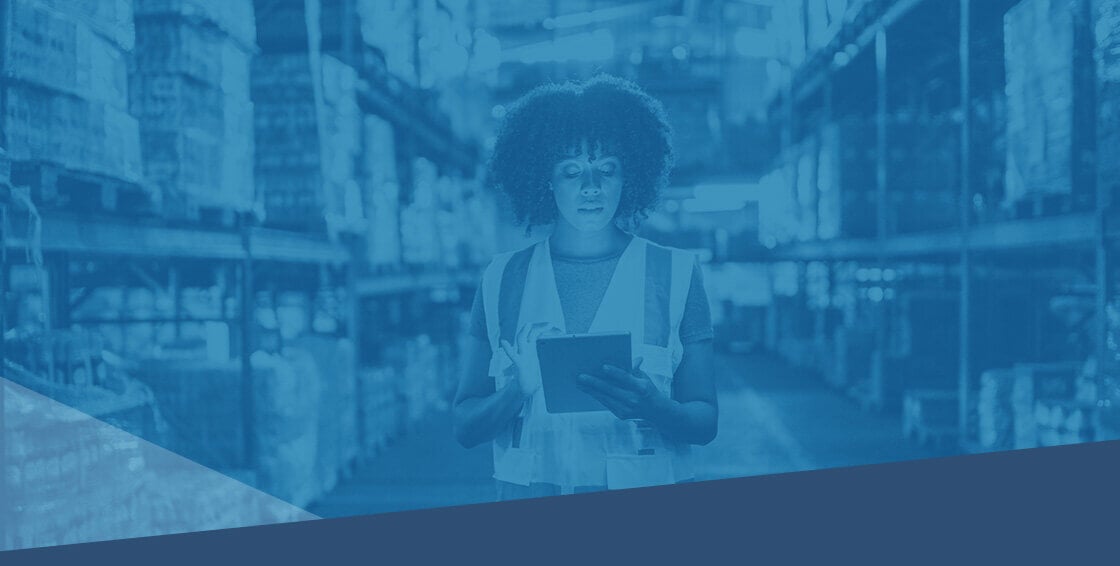
Can AI Create a More Sustainable Supply Chain?
It's no secret that the current supply chain isn't very sustainable. However, many companies have sustainability goals and are working toward a more environmentally friendly future. The importance of sustainability in the supply chain cannot be understated. The sustainability initiatives of a company's suppliers affect them, too. Artificial intelligence (AI) is one way businesses are creating more sustainable supply chains. Learn more about the role of artificial intelligence in supply chain management.
Benefits of a Sustainable Supply Chain
How can a supply chain be sustainable and profitable? Some businesses argue that eco-friendly policies are more costly. However, improving environmental metrics can often lead to better business performance. Here are some of the benefits of sustainable supply chain management:
- Environmental impact: Creating a sustainable supply chain benefits the planet. Sustainable changes reduce emissions and reliance on nonrenewable resources. A sustainable supply chain creates a healthier environment for everyone.
- Reduced risk: Sustainable supply chains have diverse suppliers, strong relationships, and increased transparency. These factors make them more resilient and reduce the risk of business continuity disruptions. Sustainability initiatives can also make it easier for companies to comply with new regulations and avoid fines and other penalties.
- Cost savings: Sustainable practices can save businesses money in several ways. Enhanced sustainability improves energy and resource efficiency, optimizes transportation routes and other processes, and reduces waste.
- Market advantages: Consumers are more aware of sustainability issues today than in the past. People want to work with companies that have the same values they do. They want sustainable supply chains, transparent sourcing, and eco-friendly products. These factors can make companies more competitive, earning them a better reputation and a larger market share.
Challenges With Sustainability in the Supply Chain
Companies face several obstacles in making their supply chains more sustainable. Here are some of the most significant challenges:
- Emissions: Shipping is the main contributor to most companies' carbon footprint is shipping. Compared to a business's direct emissions, its supply chain emissions are nearly 11.5 times higher.
- Lack of transparency: A lack of data is one of the biggest obstacles to sustainable supply chains. Most companies don't have data beyond their direct vendors. Even if they have visibility into their vendors' suppliers or other subcontractors, enforcing sustainability standards can be difficult.
- Effects from climate change: Severe weather can disrupt transportation routes and damage infrastructure. These events can include wildfires, extreme temperatures, floods and hurricanes. Extreme weather can also damage goods directly or by delaying delivery until perishable items expire. These disruptions can cause increased or unstable pricing, especially if companies don't have resilient supply chains.
- Regulatory changes: As governments worldwide implement new regulations to combat climate change, businesses may have difficulty meeting new standards or face increased costs to modify their practices to comply with new rules.
Using AI to Improve Supply Chain Sustainability
One of the ways companies are overcoming these challenges is with AI. There are many benefits of artificial intelligence in supply chain management. AI offers powerful analytics and access to real-time information. On the other hand, businesses must consider the risks of AI, such as data security and server maintenance, before proceeding. However, it can radically change how companies use their data and meet sustainability goals. Here are some of the applications of AI in the supply chain:

- Reduce waste with predictive analytics: AI can analyze more data faster than humans. They consider market trends, history, and other factors to provide more accurate demand patterns. These forecasts help companies better manage their inventories, adjusting production to reduce overstocking, stockouts, and waste.
- Increase visibility: AI improves transparency by providing data to all members of the supply chain. Improved visibility allows partners to collaborate on sustainability initiatives or choose different suppliers to meet environmental goals better.
- Improve route efficiency: AI can help companies reduce emissions and energy use. It can analyze lead times, transportation costs, and expected delivery times to optimize shipping routes. AI can also help reduce empty miles and consolidate less-than-truckload (LTL) shipments. Consolidating shipments with other shippers reduces expenses and decreases emissions per shipped unit.
- Improve labor efficiency: You can use AI to automate labor-intensive, repetitive tasks where humans are more likely to make mistakes. Automating tasks like comparing shipping rates and creating export documentation reduces errors and improves the efficient use of resources.
AI also offers other benefits to supply chain management. It can optimize or reduce transportation spending by delivering more accurate pricing forecasts. AI can also provide real-time shipment updates and account for changes such as storms. As transportation delays develop, AI can give you more accurate estimated delivery times. It can identify other potential risks so companies can implement mitigation strategies proactively.
Create a Sustainable Supply Chain With ShipERP
AI is the future of supply chain sustainability. ShipERP provides software that integrates with SAP and other ERP systems. Our software creates a seamless shipment experience by offering additional functions not available in other software. With ShipERP Core, you can compare shipping rates from hundreds of carriers to get the best price and the most efficient route. You can also generate tracking numbers, automatically create export documents, and manage orders from a streamlined dashboard.
Schedule a demo today!

